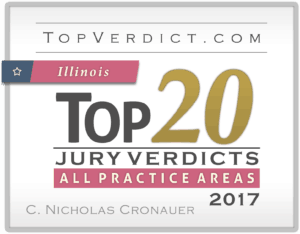

























Workers compensation is a state-mandated insurance program designed to provide financial assistance to employees who have been injured or fallen ill as a direct result of their job. This coverage includes medical expenses, lost wages, and disability benefits, helping workers and their families cope with the financial consequences of work-related injuries and illnesses.
Filing for workers compensation is essential for employees who have experienced a workplace injury or illness. It ensures that they receive the financial support they need during their recovery and helps protect their rights as employees.
The process for filing workers compensation in Illinois involves understanding eligibility, gathering the necessary documentation, filing the claim, and understanding the claims review process. This article will guide you through each step, ensuring a smooth and successful claim experience.
Most employees in Illinois are covered by workers compensation, including full-time, part-time, and temporary workers. However, some categories of workers, such as independent contractors and certain agricultural workers, may not be eligible.
Workers compensation covers a wide range of work-related injuries and illnesses, including but not limited to:
In Illinois, workers have 45 days to notify their employer of a work-related injury or illness and up to three years to file a workers compensation claim. It is essential to act promptly to protect your rights and ensure you receive the benefits you are entitled to.
To file a workers compensation claim in Illinois, you will need the following documents:
Each document serves a specific purpose in your claim:
Having complete and accurate documentation is crucial to the success of your claim. It helps establish the legitimacy of your claim and ensures that you receive the appropriate benefits.
B. Explanation of each step
Following the steps correctly increases the likelihood of a successful claim, ensuring you receive the benefits you need and protecting your rights as an employee.
Claims are reviewed by the IWCC, which evaluates the submitted documentation and evidence to determine the validity of the claim and the appropriate benefits.
The review process can take several weeks or even months, depending on the complexity of the claim and the workload of the IWCC.
The IWCC evaluates the evidence and documentation, considering factors such as the severity of the injury or illness, the impact on the employee’s ability to work, and the need for ongoing medical care. The IWCC then decides whether to approve or deny the claim and determines the benefits awarded.
Workers compensation benefits in Illinois may include:
Benefits are typically paid through your employer’s workers compensation insurance carrier. Payments are generally made on a weekly or biweekly basis, depending on the type of benefit.
If your claim is denied or you disagree with the benefits awarded, you have the right to appeal the decision. The appeals process in Illinois includes:
Filing a workers compensation claim in Illinois involves understanding eligibility, gathering necessary documentation, filing the claim, and navigating the claims review process. Following each step carefully increases the likelihood of a successful outcome and ensures you receive the benefits you need.
Understanding the workers compensation process in Illinois is crucial for employees who have experienced a work-related injury or illness. Being well-informed helps protect your rights and ensures that you receive the appropriate support during your recovery.
When filing a workers compensation claim in Illinois, it’s essential to act promptly, gather accurate documentation, and follow the process carefully. If you’re unsure about any aspect of the process, consider seeking advice from a workers compensation attorney or contacting the IWCC for guidance.
A. Links to relevant state agencies
B. Contact information for assistance
Additional resources, including forms, instructions, and informational materials, can be found on the IWCC’s website. You can also contact the IWCC or IDOL for assistance, guidance, or further information about workers compensation